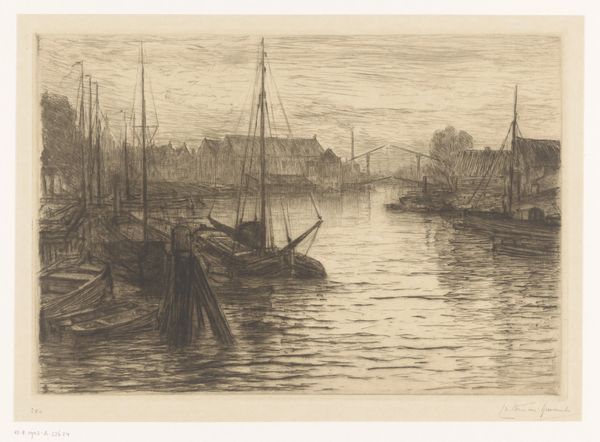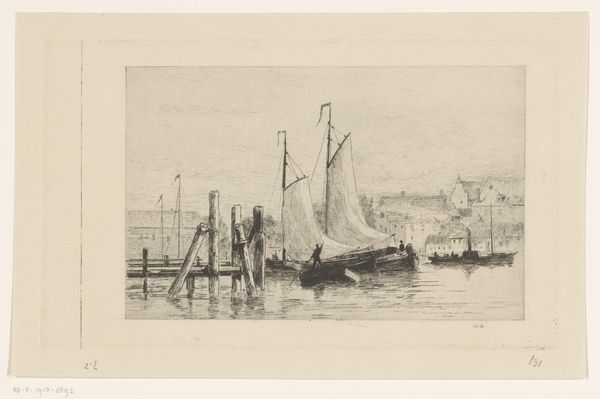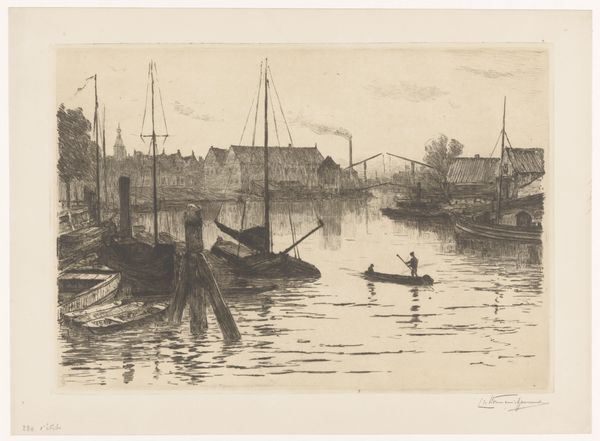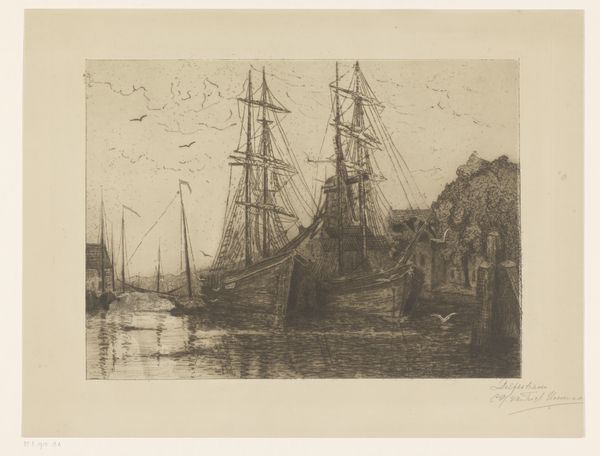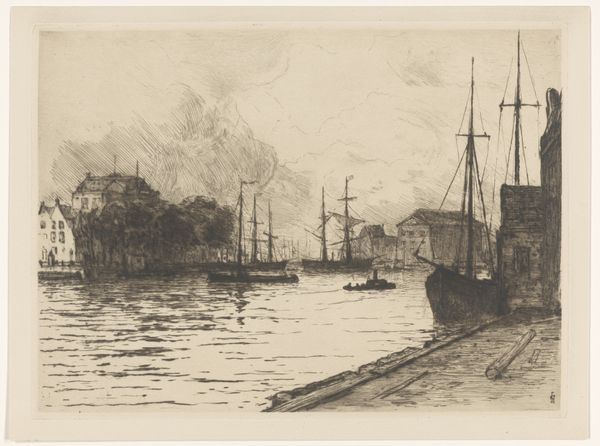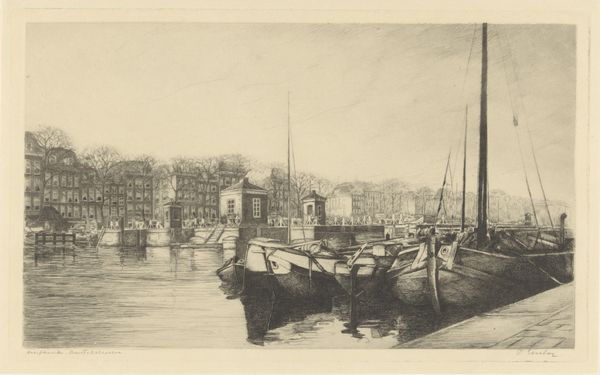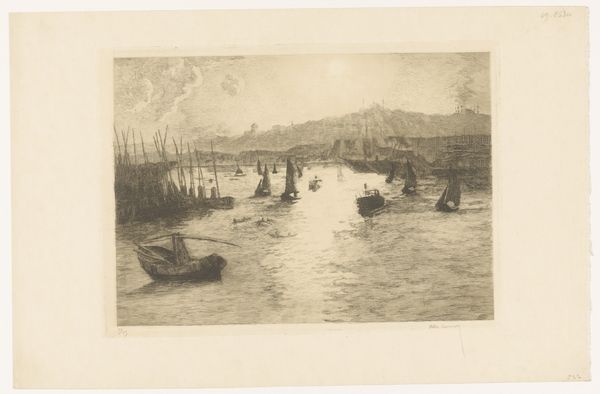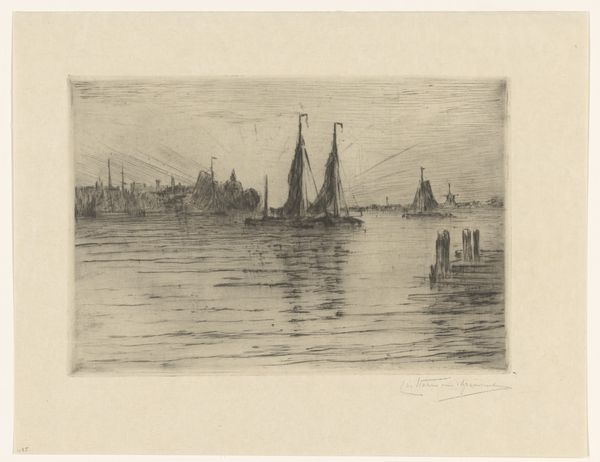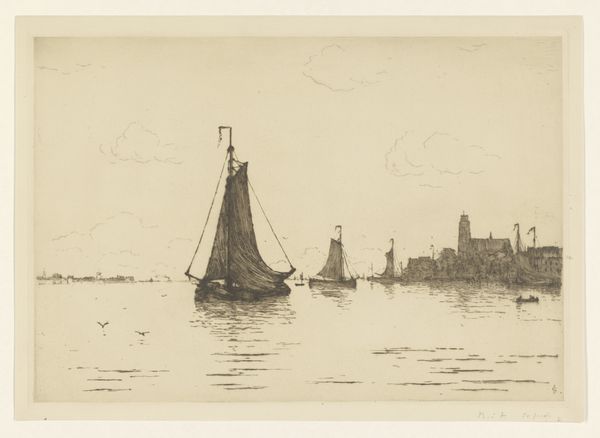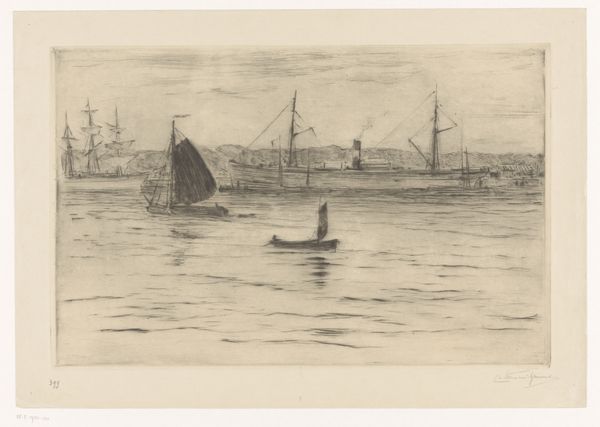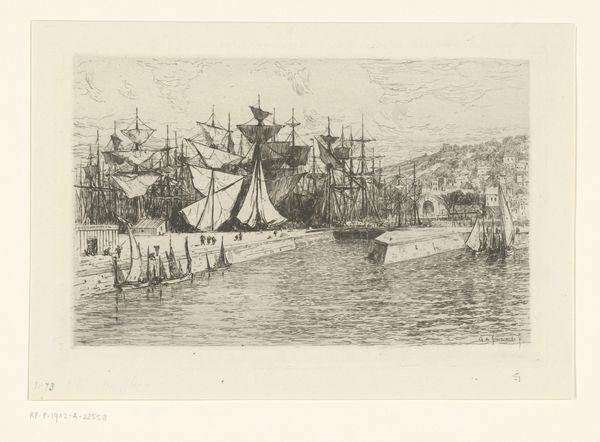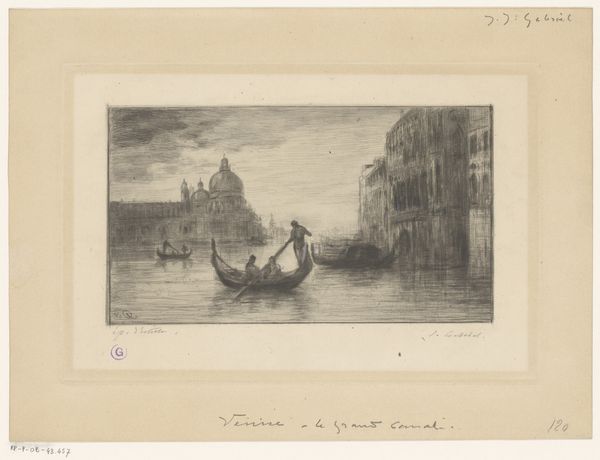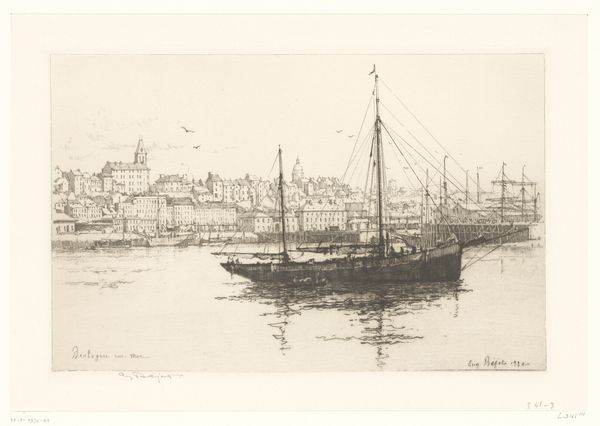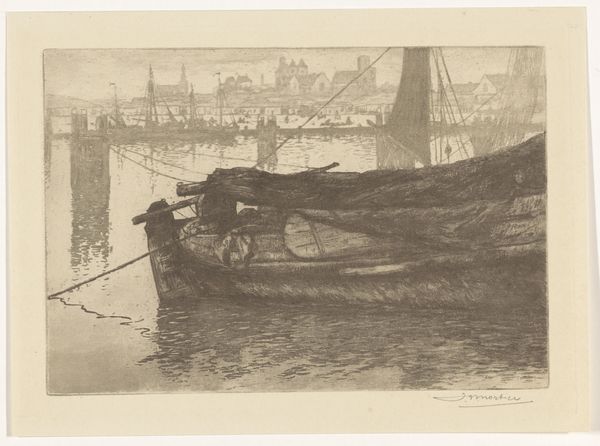
drawing, print, etching
#
drawing
#
16_19th-century
#
dutch-golden-age
# print
#
impressionism
#
etching
#
landscape
#
charcoal drawing
#
19th century
#
cityscape
Dimensions: height 341 mm, width 494 mm
Copyright: Rijks Museum: Open Domain
Carel Nicolaas Storm van 's-Gravesande made this etching of a Dordrecht harbor scene. The artist used a metal plate, likely copper or zinc, coating it with a waxy ground to then scratch an image into it with a needle. After submerging the plate in acid, the drawn lines are etched into its surface to create the recessed lines that hold ink. The etching process, in van 's-Gravesande's skilled hands, imbues the image with a unique atmosphere. The dense network of lines captures the quiet stillness of the harbor, and the soft light that permeates the scene. The industrial activities of the harbor, with its docked boats and distant architecture, are subtly captured with this precise, detailed process. What’s interesting is the way van 's-Gravesande elevates an industrial scene to the level of fine art. Etching, as a printmaking technique, enabled wider distribution of images, playing a key role in shaping visual culture during the industrial era. By appreciating the labor-intensive process behind this harbor scene, we recognize the artistry involved and question the traditional boundaries between art, craft, and the representation of labor itself.
Comments
No comments
Be the first to comment and join the conversation on the ultimate creative platform.
